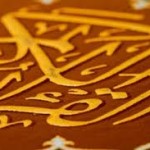Bay’at
Shortened Question:
State the definition and legal ruling of `Bay`at`?
Question:
What is `Bay`at` with a Sheikh? Can we take a `Bay`at` with a Sufi Sheikh?
Answer:
In the Name of Allah, the Most Gracious, the Most Merciful.
As-salāmu ‘alaykum wa-rahmatullāhi wa-barakātuh.
Allah Ta`alaa says:
خلق الإنسان ضعيفا
Human being is created weak[1].
The weakness referred to in the verse also includes the weakness of the inner self (Nafs) which has pride, arrogance, greed, anger, argumentativeness etc.[2]. These traits lead one to evil and wrongdoings. Allah Ta`alaa says:
إن النفس لأمارة بالسوء
Surely, man`s inner self often incites to evil[3].
The weakness of the Nafs leading to evil is aggravated by the Shaytaan (Satan), our avowed enemy. Allah records the vow of Satan:
فبما أغويتني لأقعدن لهم صراطك المستقيم. ثم لآتينهم من بين أيديهم ومن خلفهم وعن أيمانهم وعن شمائلهم ولا تجد أكثرهم شاكرين
Because You have sent me astray, surely, I will sit in wait against them (human beings) on Your straight path. Then I will come to them from before them and behind them, from their right and from their left, and You will not find most of them as thankful ones[4].
The combination of the Nafs and Shaytaan poses a huge challenge in submitting ourselves to Allah and overpowering our Nafs and Shaytaan. The human will only be able to succeed and suppress the Nafs and Shaytaan if the soul has been reformed, rectified and purified from the evils of the heart. The purification of the soul is called Tazkiyah. Allah says:
قد أفلح من تزكى
He is successful who has purified himself[5].
Furthermore, an individual who sows the seeds of purification and self-rectification will not only reap spiritual well-being and sweetness in faith but also the fruits of a healthy and content living in all aspects of life[6].
How often we experience grief and agony due to marital problems, commercial disputes and social ills. When we analyse the cause of our grief, the real cause is the Nafs and its mischief.
The rectification and reformation of the soul is necessary and there are different ways to achieve this. A person may reach this objective by treading the path of knowledge, sitting in the company of pious saints, engaging in the remembrance and supplication to Allah, or by taking Bay`at.
Bay’at refers to the promise of allegiance that the Mureed (follower) takes with the Sheikh that he will adhere to the instructions prescribed by him. The purpose of Bay’at is to take support from a spiritual guide to change and reform oneself[7].
Bay’at is not a requirement for reformation. While the act of self-reformation and purifying the soul is compulsory;[8] the very customary practice of taking Bay`at from a Sheikh to acquire this objective is desirable and an effective way[9]. The basis of Bay`at can be clearly found in the Glorious Qur`an[10] and the Sunnah[11]. Experience proves that one of the most effective methods to acquire Islaah and self-reformation is to submit oneself to the guidance and care of a Shaikh who is an expert instructor in the field of detecting and diagnosing discrete inner maladies and imbibing desired traits[12].
The purpose of Bay`at will be defeated if one takes Bay`at and yet does not reform and change the mode of his life. The connection and company of the Sheikh should inculcate and develop the quality of Taqwa, motivate a person to adopt Sunnah and build the consciousness of Allah in one`s life[13].
In choosing a spiritual guide, the following will be useful:
- The spiritual guide must be knowledgeable of and practising the Qur`an and Sunnah and aversive to practices contrary to Shariah;
- The spiritual guide must have spent adequate time in the company of a spiritual guide (Sheikh) and must have earned the trust of his Sheikh[14];
- There must be compatibility between the spiritual guide and the disciple;
- The common practise of taking Bay`at to a popular person just for the sake of following the trend is incorrect. One should choose a spiritual guide from whom one can benefit and climb the ladder of spirituality.
- It is best to maintain a contact first (Islahi ta`alluq) before confirming the Bay`at in order to determine if there is compatibility and one is really benefitting from such a spiritual guide.
And Allah Ta’āla Knows Best
Hanif Yusuf Patel
Student Darul Iftaa
UK
Checked and Approved by,
Mufti Ebrahim Desai.
www.daruliftaa.net
References
[1] [Al-Qur`an, 4:28]
[2] إن الإنسان خلق هلوعا. إذا مسّه الشّرّ جزوعا. وإذا مسّه الخير منوعا
[Al-Qur`an, 70: 19-21]
ولئن أذقنا الإنسان منا رحمة ثم نزعناها منه إنه ليئوس كفور. ولئن أذقناه نعماء بعد ضراء مسته ليقولن ذهب السيئات عني إنه لفرح فخور
[Al-Qur`an, 11:9-10]
[Al-Qur`an, 10: 12; 57: 22-3; 43:15; 18:54]
[3] وما أبرئ نفسي إن النفس لأمارة بالسوء إلا ما رحم ربي إن ربي غفور رحيم
[Al-Qur`an, 12:53]
[4] قال فبما أغويتني لأقعدن لهم صراطك المستقيم. ثم لآتينهم من بين أيديهم ومن خلفهم وعن أيمانهم وعن شمائلهم ولا تجد أكثرهم شاكرين
[Al-Qur`an, 7: 16-17]
[5] قد أفلح من تزكى
[Al-Qur`an, 87: 14]
قد أفلح من زكّها
[Al-Qur`an, 91: 9]
[6] من عمل صالحا من ذكر أو أنثى وهو مؤمن فلنحيينه حياة طيبة ولنجزينهم أجرهم بأحسن ما كانوا يعملون
[Al-Qur`an, 16:97]
[7] [Fatawa Mahmodiyyah, 4:402-5, Dar al-Iftaa Jamiah Farooqiyyah, Karachi]
[8] [Fatawa Haqqaniyyah, 2:243-4, Jamiah Dar al-Uloom Haqqaniyyah]
[9] [Fatawa Rashidiyah (Kamil), p.226, Deoband; Imdad al-Fatawa, 5:246, Maktabah Dar al-Uloom Karachi; Fatawa Mahmoodiyya, 4: 405-14]
قال العلامة فقير الله الحنفي: وهي سنة ليست بواجبة لأن الناس بايعوا النبي صلى الله عليه وسلم وتقربوا بها إلى الله تعالى وما وجدنا الدليل على تاثم تاركها ولم ينكر أحد من الأئمة المهديين من الصحابة والتابعين على تاركها فكان الإجماع السكوتى على أنها ليست بواجبة اه.
[Qutub al-Irshad, Bahth Takrar al-Bay`ah Mathurah, p.543; Anwaar al-Qudsiyyah, p.5]
قال الشاه ولى الله الدهلوي: فاعلم أن البيعة سنة وليست بواجبة
[Shifa al-Aleel Tarjumah al-Qawl al-Jamil, 2:21; Fatawa Haqqaniyyah, 2:244]
لا يلزم البيعة الرسمية فى طريقة من طرق المشائخ، نعم تستحب فمن أتى بها ووفّى توفّى أجرها، ومن لم يأت بها وسلك الطريق المستقيم أخذا من الكتاب والسنة وآداب السلف الصالحين لا يخشى عليه سوء الخاتمة الخ
[Kifayat al-Mufti, 2:107, Dar al-Isha`at Karachi]
[10] لقد رضي الله عن المؤمنين إذ يبايعونك تحت الشجرة فعلم ما في قلوبهم فأنزل السكينة عليهم وأثابهم فتحا قريبا
[Al-Qur`an, 48:18]
ياايها النبي اذا جاءك المؤمنات يبايعنك على ان لايشركن بالله شيئا ولايسرقن ولايزنين ولايقتلن اولادهن ولاياتين ببهتان يفترينه بين ايديهن وارجلهن ولايعصينك في معروف فبايعهن واستغفر لهن الله ان الله غفور رحيم
[Al-Qur`an, 60:12]
[11] وقال شاه ولى الله محدث دهلوي: واستفاض عن رسول الله صلى الله عليه وسلم إن الناس كانوا يبايعونه تارة على الهجرة والجهاد وتارة على إقامة اركان الإسلام
[Shifa al-Aleel Tarjumah al-Qawl al-Jameel, 1:15; Fatawa Haqqaniyyah, 2:244, Jamiah Dar al-Uloom Haqqaniyyah]
عن قيس سمعت جريرا رضي الله عنه: بايعت رسول الله صلى الله عليه وسلم على شهادةأن لا إله إلله وأن محمد رسول الله وإقام الصلوة وإيتاء الزكوة والسمع والطاعة والنصح لكل مسلم
[Saheeh al-Bukhari, 3:72; Saheeh Muslim, 1:75]
عن جنادة بن أبي أمية قال: دخلنا على عبادة بن الصامت وهو مريض، قلنا: أصلحك الله حدث بحديث ينفعك الله به سمعته من النبي صلى الله عليه وسلم، قال: دعانا النبي صلى الله عليه وسلم فبايعناه، فقال فيما أخذ علينا: أن بايعنا على السمع والطاعة، في منشطنا ومكرهنا، وعسرنا ويسرنا وأثرة علينا، وأن لا ننازع الأمر أهله، إلا أن تروا كفرا بواحا، عندكم من الله فيه برهان
[Saheeh al-Bukhari, 9:47; Saheeh Muslim, 3:1470]
عن عبادة بن الصامت، قال: بايعنا رسول الله صلى الله عليه وسلم على السمع والطاعة في المنشط والمكره، وأن لا ننازع الأمر أهله، وأن نقوم أو نقول بالحق حيثما كنا، لا نخاف في الله لومة لائم
عن عبد الله بن عمر رضي الله عنهما، قال: كنا إذا بايعنا رسول الله صلى الله عليه وسلم على السمع والطاعة، يقول لنا: فيما استطعتم
[Saheeh al-Bukhari, 9:77; Saheeh Muslim, 3:1490]
[12] ولا يتسير ذلك إلا بالمجاهدة على يد شيخ كامل قد جاهد نفسه وخالف هواه وتخلى عن الأخلاق الذميمة وتحلى بالأخلاق الحميدة ... فكما أن العلم بالتعلم من العلماء فكذلك الخلق بالتخلق على يد العرفاء الخ
[I`laa` as-Sunan, 18:443, Idarah al-Qur`an Karachi]
[13] Fatawa Haqqaniyyah, 2:243; Khayr al-Fatawa, 1:369, Maktabah Imdadiyah, Multan]
[14] قال الشاه ولى الله الدهلوى: فشرط من يأخذ البيعة أمور أحدها علم الكتاب والسنة والشرط الثاني العدالة والتقوى والشرط الثالث ان يكون زاهدا في الدنيا راغبا في الآخرة والشرط الرابع ان يكون آمرا بالمعروف ناهيا عن المنكر والشرط الخامس ان يكون صحبت المشائخ وتأدب بهم دهرا طويلا وأخذ منهم نور الباطن ولسكينة
[Shifa al-Aleel Tarjumah al-Qawl al-Jamil, 1:23-30; Fatawa Haqqaniyyah, 2: 245; Fatawa Azizi, 2:102-5; Mahmood al-Fatawa, 4:173; Maktabah Anwar, Dabhel; Fatawa Mahmoodiyah, 4:341-67]
DISCLAIMER:
The Ask Our Imam site hopes to respond to queries relating to Islamic law. It is not an Islamic Law Shari`ah Court. The questions and answers found on this website are for educational purposes. However, many of the rulings rendered here are distinct to the specific scenario and thus should be read in conjunction with the question and not taken as a basis to establish a verdict in another situation or environment. This site bears no responsibility in these responses being used out of their intended context, nor to any party who may or may not follow the responses given and is being hereby exempted from loss or damage howsoever caused. None of the responses rendered may be used as evidence in any Court of Law without prior written consent of Our Imam. Any reference to another website or link provided in our responses or article should not be taken as an endorsement of all the content on that website; in fact, it is restricted to the particular material being cited.
Posted in CustomsAqaa'id (Beliefs)Miscelleaneous on 17th Jan 2016 by Our Imam | 1418 Views











